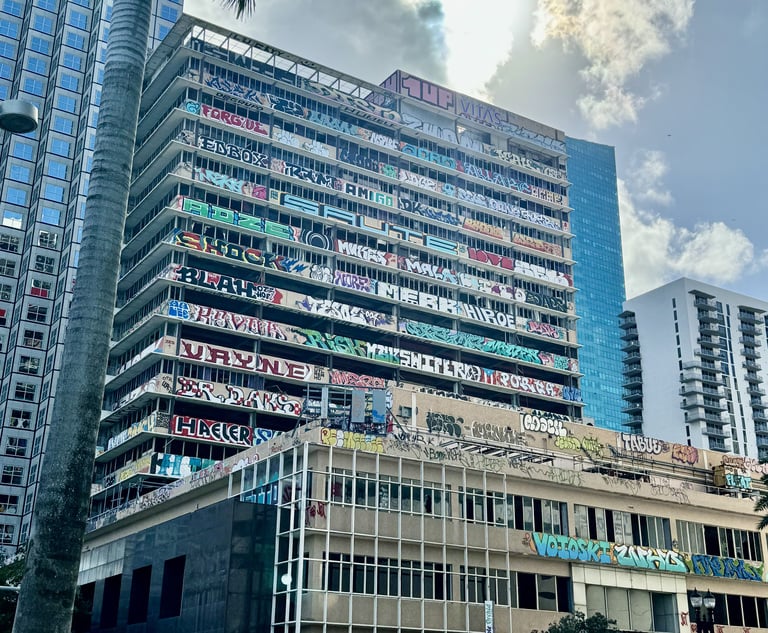iCuba: Tech and a Way Forward for US Investment in the Trump Era
Since 1962 when President John F. Kennedy proclaimed an embargo on trade between the United States and Cuba, restrictions against U.S. persons, as defined by 31 C.F.R. Section 515.329, have been in effect, with the U.S. Department of the Treasury's Office of Foreign Assets Control, through the Cuban Assets Control Regulations 31 C.F.R. Section 515.101 et seq., and the Bureau of Industry and Security, through the Export Administration Regulations 15 C.F.R. Section 730.1 et seq., primarily implementing such prohibitions, write Maria Acevedo-Belt and Anaili M. Cure.
July 21, 2017 at 03:30 AM
4 minute read
Since 1962 when President John F. Kennedy proclaimed an embargo on trade between the United States and Cuba, restrictions against U.S. persons, as defined by 31 C.F.R. Section 515.329, have been in effect, with the U.S. Department of the Treasury's Office of Foreign Assets Control, through the Cuban Assets Control Regulations 31 C.F.R. Section 515.101 et seq., and the Bureau of Industry and Security, through the Export Administration Regulations 15 C.F.R. Section 730.1 et seq., primarily implementing such prohibitions.
On Dec. 17, 2014, former President Barack Obama announced his intentions to “chart a new course with Cuba.” Obama subsequently issued a series of executive orders resulting in multiple amendments to the CACR, which eased travel restrictions to Cuba and promulgated 12 categories of general licenses for doing business in Cuba.
The 12 categories of general licenses signified great promise in normalizing relations with the island since under the embargo U.S. persons can do business with Cuba only if they qualify for one of the general licenses contained in the CACR or if OFAC grants a specific license for the particular proposed activity.
This content has been archived. It is available through our partners, LexisNexis® and Bloomberg Law.
To view this content, please continue to their sites.
Not a Lexis Subscriber?
Subscribe Now
Not a Bloomberg Law Subscriber?
Subscribe Now
NOT FOR REPRINT
© 2025 ALM Global, LLC, All Rights Reserved. Request academic re-use from www.copyright.com. All other uses, submit a request to [email protected]. For more information visit Asset & Logo Licensing.
You Might Like
View All
Sorry. We Can't Get to Your Case: Judge Speaks Out on Judicial Shortages

Special Counsel Jack Smith Prepares Final Report as Trump Opposes Its Release
4 minute read
Graffiti Showdown: Miami Clashes Over Demolition Site Cleanup Before New Year’s
Trending Stories
- 1'It's Not Going to Be Pretty': PayPal, Capital One Face Novel Class Actions Over 'Poaching' Commissions Owed Influencers
- 211th Circuit Rejects Trump's Emergency Request as DOJ Prepares to Release Special Counsel's Final Report
- 3Supreme Court Takes Up Challenge to ACA Task Force
- 4'Tragedy of Unspeakable Proportions:' Could Edison, DWP, Face Lawsuits Over LA Wildfires?
- 5Meta Pulls Plug on DEI Programs
Who Got The Work
Michael G. Bongiorno, Andrew Scott Dulberg and Elizabeth E. Driscoll from Wilmer Cutler Pickering Hale and Dorr have stepped in to represent Symbotic Inc., an A.I.-enabled technology platform that focuses on increasing supply chain efficiency, and other defendants in a pending shareholder derivative lawsuit. The case, filed Oct. 2 in Massachusetts District Court by the Brown Law Firm on behalf of Stephen Austen, accuses certain officers and directors of misleading investors in regard to Symbotic's potential for margin growth by failing to disclose that the company was not equipped to timely deploy its systems or manage expenses through project delays. The case, assigned to U.S. District Judge Nathaniel M. Gorton, is 1:24-cv-12522, Austen v. Cohen et al.
Who Got The Work
Edmund Polubinski and Marie Killmond of Davis Polk & Wardwell have entered appearances for data platform software development company MongoDB and other defendants in a pending shareholder derivative lawsuit. The action, filed Oct. 7 in New York Southern District Court by the Brown Law Firm, accuses the company's directors and/or officers of falsely expressing confidence in the company’s restructuring of its sales incentive plan and downplaying the severity of decreases in its upfront commitments. The case is 1:24-cv-07594, Roy v. Ittycheria et al.
Who Got The Work
Amy O. Bruchs and Kurt F. Ellison of Michael Best & Friedrich have entered appearances for Epic Systems Corp. in a pending employment discrimination lawsuit. The suit was filed Sept. 7 in Wisconsin Western District Court by Levine Eisberner LLC and Siri & Glimstad on behalf of a project manager who claims that he was wrongfully terminated after applying for a religious exemption to the defendant's COVID-19 vaccine mandate. The case, assigned to U.S. Magistrate Judge Anita Marie Boor, is 3:24-cv-00630, Secker, Nathan v. Epic Systems Corporation.
Who Got The Work
David X. Sullivan, Thomas J. Finn and Gregory A. Hall from McCarter & English have entered appearances for Sunrun Installation Services in a pending civil rights lawsuit. The complaint was filed Sept. 4 in Connecticut District Court by attorney Robert M. Berke on behalf of former employee George Edward Steins, who was arrested and charged with employing an unregistered home improvement salesperson. The complaint alleges that had Sunrun informed the Connecticut Department of Consumer Protection that the plaintiff's employment had ended in 2017 and that he no longer held Sunrun's home improvement contractor license, he would not have been hit with charges, which were dismissed in May 2024. The case, assigned to U.S. District Judge Jeffrey A. Meyer, is 3:24-cv-01423, Steins v. Sunrun, Inc. et al.
Who Got The Work
Greenberg Traurig shareholder Joshua L. Raskin has entered an appearance for boohoo.com UK Ltd. in a pending patent infringement lawsuit. The suit, filed Sept. 3 in Texas Eastern District Court by Rozier Hardt McDonough on behalf of Alto Dynamics, asserts five patents related to an online shopping platform. The case, assigned to U.S. District Judge Rodney Gilstrap, is 2:24-cv-00719, Alto Dynamics, LLC v. boohoo.com UK Limited.
Featured Firms
Law Offices of Gary Martin Hays & Associates, P.C.
(470) 294-1674
Law Offices of Mark E. Salomone
(857) 444-6468
Smith & Hassler
(713) 739-1250







